Eco-Heroes
Meet the Malaysian students turning your trash into treasure
05/13/2023
by MJ Blancaflor
In the rural Malaysian state of Terengganu, a group of ocean-loving university students and lecturers band together to upcycle ocean plastic into sell-out merchandise.
Photo courtesy of EcoCupid co-founder and chief editor Bryan Yong.
Scientists have long warned against the negative impact of plastics in the ocean. It can take hundreds or even thousands of years for plastic to break down. During this period, the plastic waste that enters the ocean forms microplastics or tiny plastic particles that contaminate marine organisms and penetrate the food chain. Plastics subsequently endanger marine ecosystems and pose risks to human health.
Addressing ocean pollution has long been a global challenge since the areas we call different oceans are just one huge, interconnected water body—which covers 70 percent of the earth and is home to more than 230,000 marine creatures discovered by mankind.
As the global population and economies grow, waste management and reduction cannot keep up with the rapid developments. Industries and businesses remain dependent on plastics. In fact, it was predicted that the weight of plastic waste might surpass that of fish in the years to come. A 2019 report by environmental group WWF estimated that the volume of plastic waste going into the ocean could quadruple between 2010 and 2050.
To mitigate ocean pollution, some Eco-Heroes have turned to upcycling—or the process of sorting, reusing, and breaking down waste to create new products. They hope to reduce or eliminate plastic waste amid a rising urgency on the part of governments and companies in Asia to respond to ocean pollution and climate change.
The youth participation
At Kuala Nerus District on the east coast of Malaysia, Universiti Malaysia Terengganu (UMT) students run an organization called Sustainable Ocean Alliance (SOA) MY Ocean Hope. The group is the Malaysian charter of the global network Sustainable Ocean Alliance or SOA, which was founded by 28-year-old Daniela Fernandez in an effort to restore the health of the oceans.
Since its establishment in 2014, SOA has established hubs in various countries like Malaysia, most of which are led by high schoolers, college students, and young professionals. It also launched an accelerator to help fund startups and social enterprises that develop solutions to address ocean pollution.
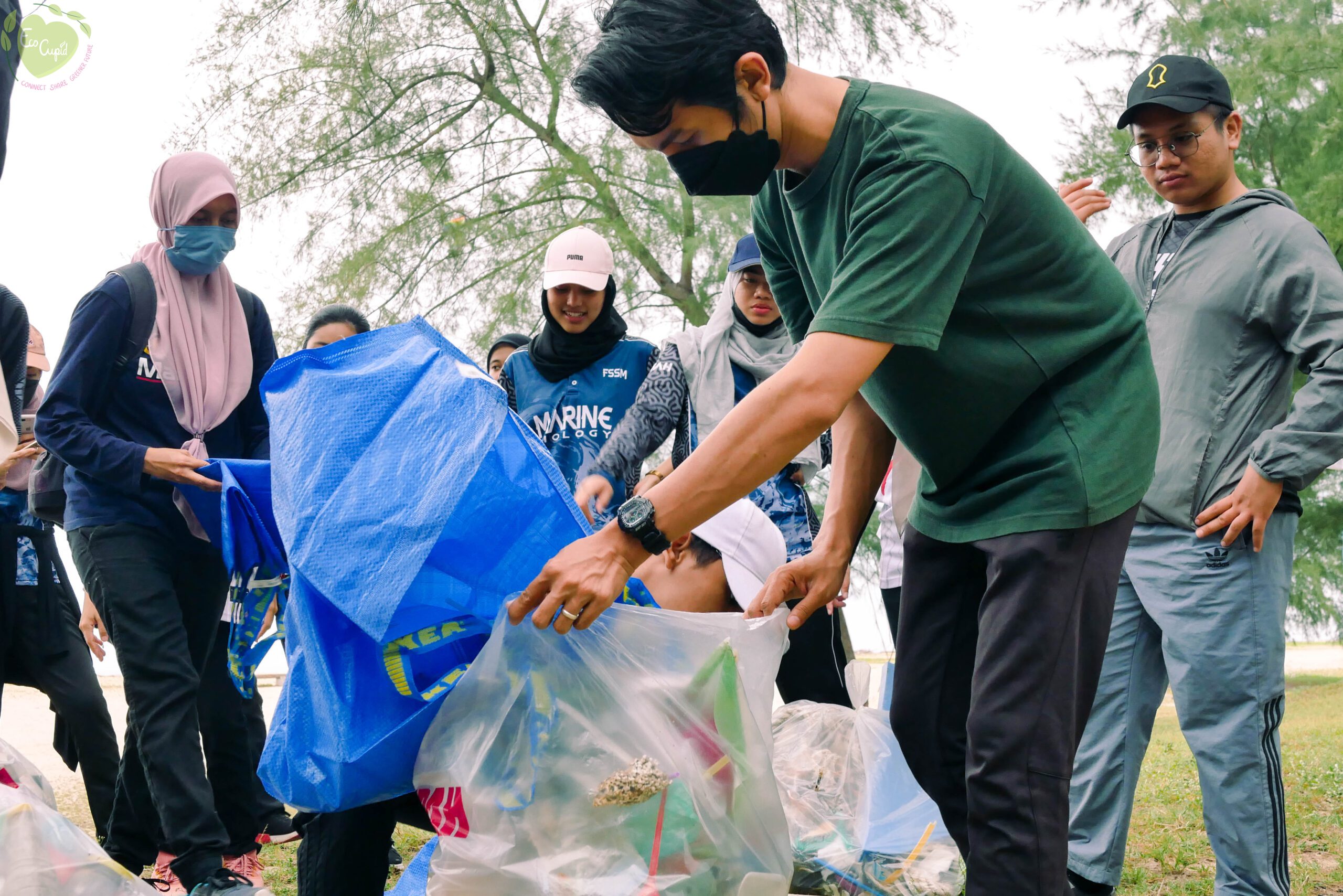
Likewise, SOA MY Ocean Hope is in a unique and significant position to contribute to Malaysia’s push against pollution and the global movement for a waste-free ocean. The east coast of Malaysia is the gateway to magnificent beach resorts and islands facing the South China Sea, a marginal sea of the Pacific Ocean. Unfortunately, the country consumes the most plastic in Asia after surpassing the usage figures of manufacturing powerhouse China and its ASEAN neighbors Indonesia, the Philippines, Thailand, and Vietnam, according to the aforementioned WWF study conducted in 2019.
Since its inception in 2021, SOA MY Ocean Hope has been harnessing the creativity and passion of university students to launch eco-projects aimed at addressing ocean pollution. The NGO is specifically designed to provide an avenue for the youth to promote community participation in environmental research and conserve Malaysian marine biological heritage.
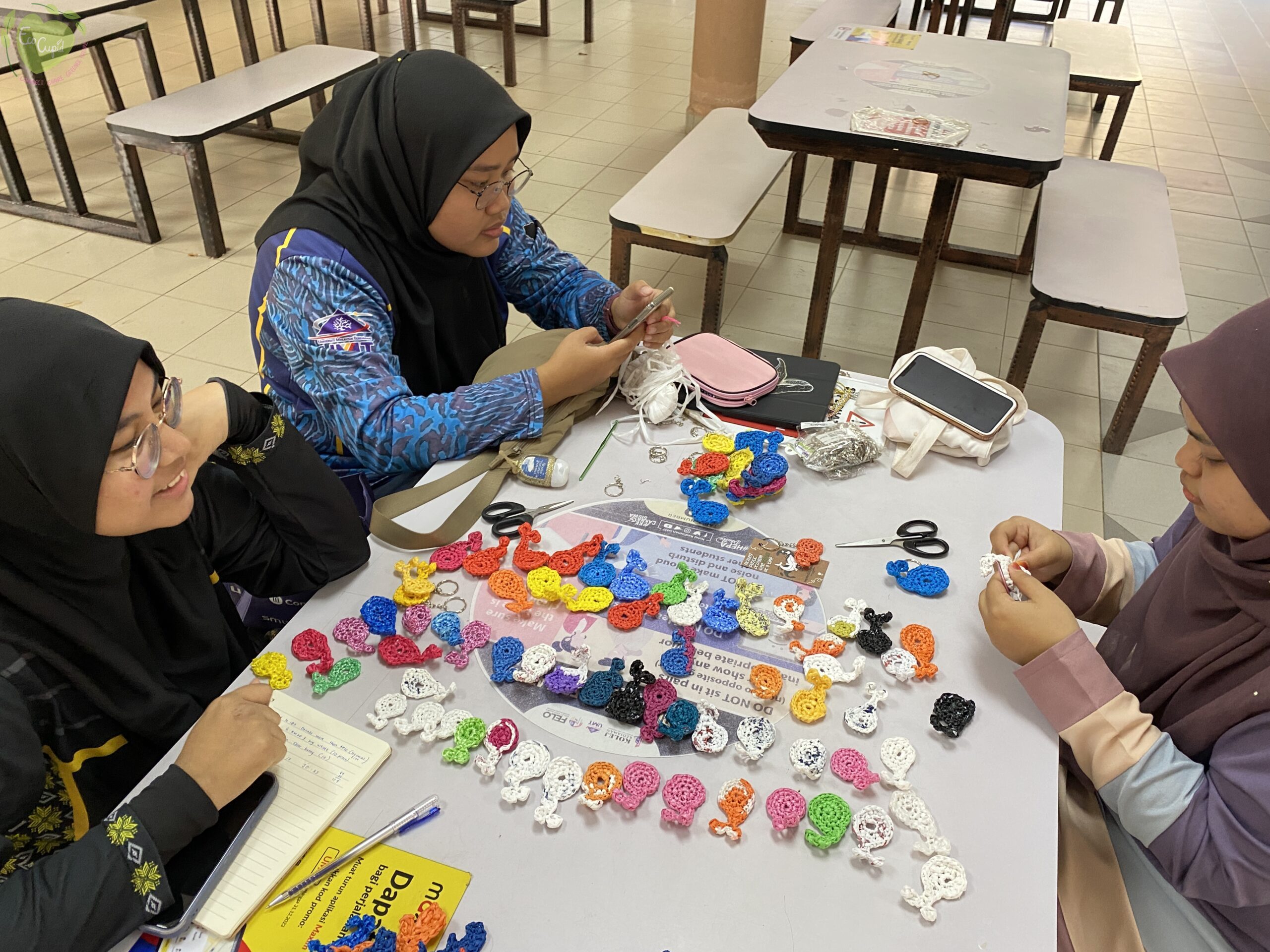
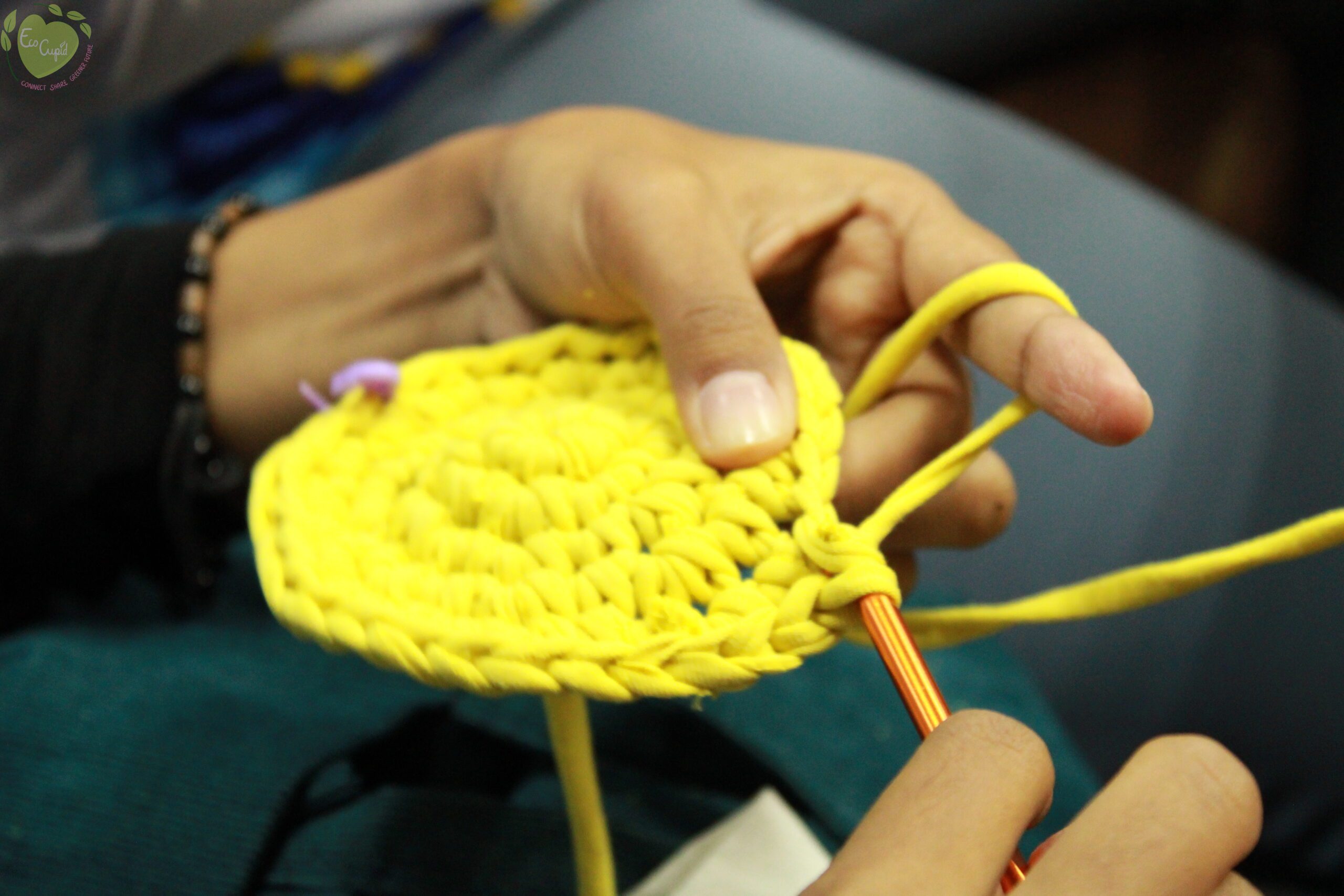
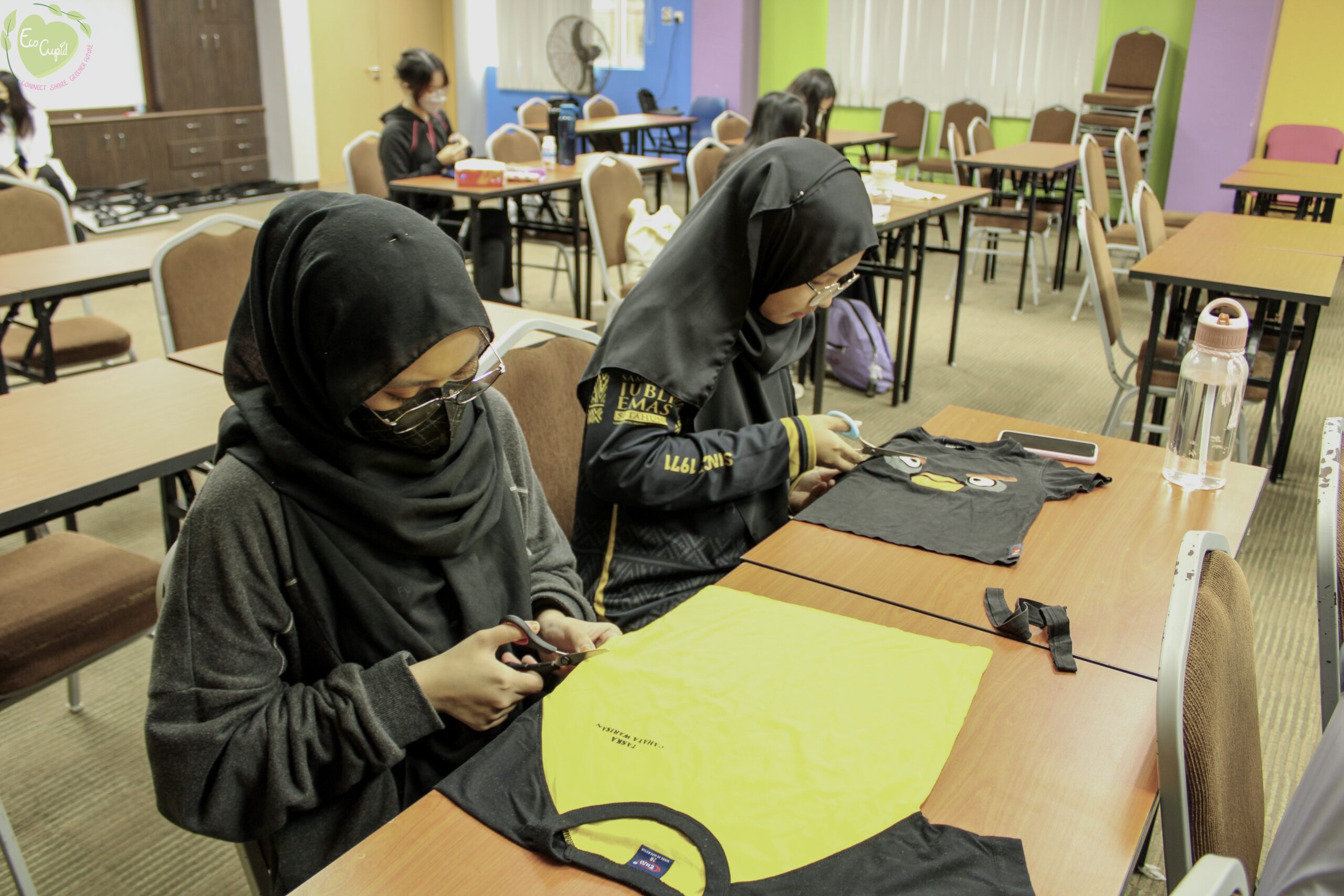
Learning upcycling
Guided by UMT mentors, SOA MY Ocean Hope members have been promoting upcycling in coastal communities through their project dubbed Plastic Upcycling Livelihood Project (PULP). It enables communities around their campus to convert plastic waste into new, added-value products like plant pots, allowing them to explore other potential sources of income while reducing garbage that would have ended up in the ocean.
The group is also eyeing to partner with women groups to teach them crocheting using plastics to make eco-friendly baskets and bags under the program PlusKait. The group perceives the project as an income-generating activity for Malaysian women, which also promotes behavioral changes toward garbage.
SOA MY Ocean Hope hopes that PULP and PlusKait will provide opportunities for the common folk of Malaysia’s coastal areas to make a living out of upcycling as eco-friendly startups and promote these enterprises.
“With this project, we are also empowering those struggling to find work since they can have income with the things they are making. So this is like a side hustle for them,” says Afifi Noraha binti Mokhsin, a 21-year-old marine biology student at UMT and project manager of PlusKait.
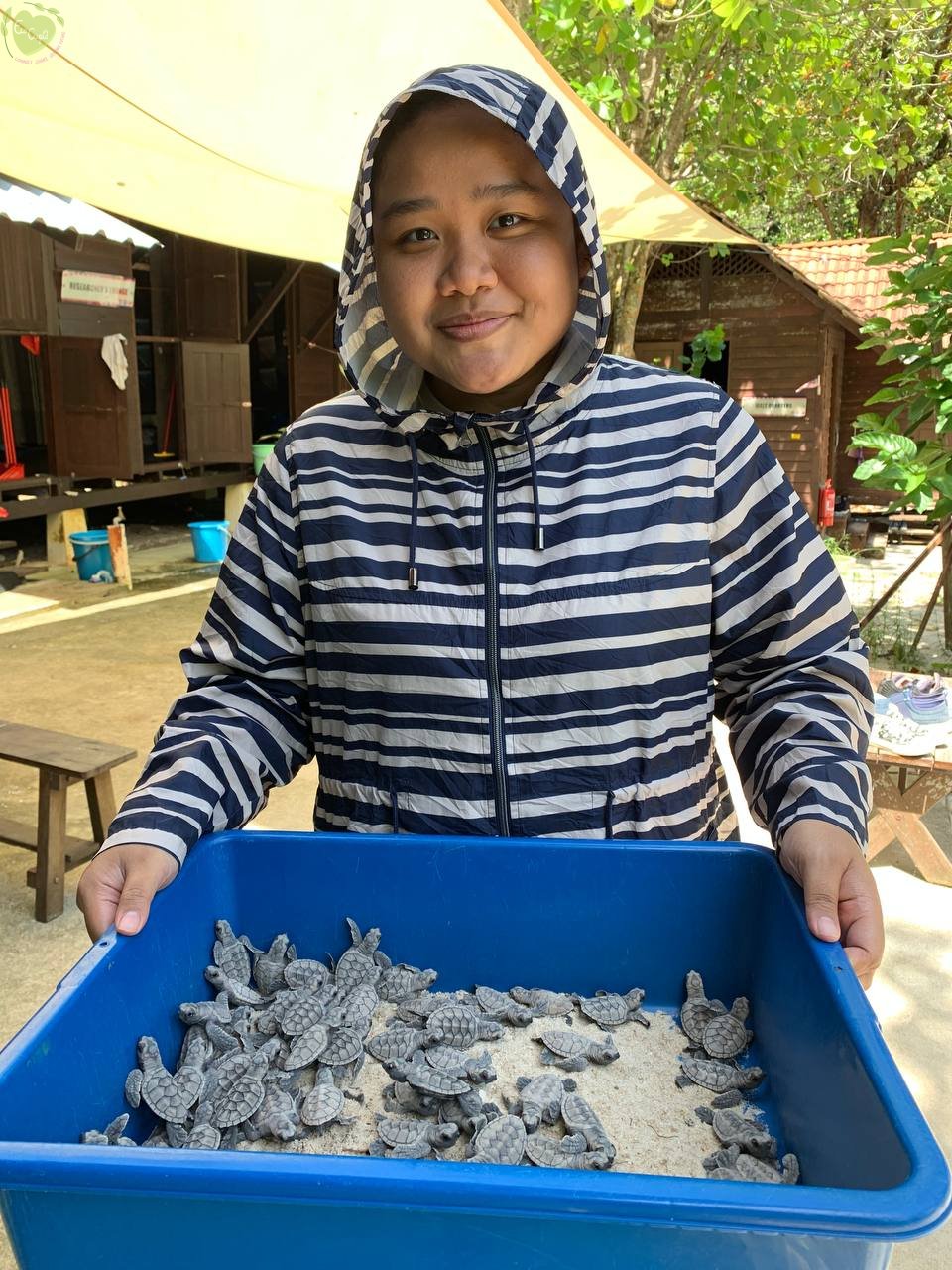
The organization has also put up waste segregation stands around beaches to encourage people to separate biodegradable materials from plastics that could be reused or upcycled.
Finding partners
To further promote its upcycling initiative, SOA MY Ocean Hope has been partnering with local cafes through their program, “Bearista.”
The group encourages cafe owners to collect the used plastic cups of their customers and upcycles these into plant pots and other products since coffee plantations also bear the brunt of plastic pollution and climate change. At the same time, the organization promotes the use of reusable cups instead of plastic ones among coffee customers.
“We want to share responsibility with cafe owners because they are using plastic cups when they’re serving the coffee. So what we do is we give them a platform so that they can send their plastic waste to us and be upcycled into new products,” Elvian Masli, deputy leader of SOA MY Ocean Hope, tells EcoCupid.

SOA MY Ocean Hope also takes pride in partnering with big companies such as Uniqlo, which supports the organization’s fundraising efforts. It has provided the upcycling machine and materials for PULP.
Elvian says the brand is eyeing to provide another upcycling machine for one of the communities on the east coast, where SOA MY Ocean Hope will run its upcycling center. He adds that the group looks forward to collaborating with other brands to promote its upcycling initiative and reach more people.

Overcoming challenges
Being a small team trying to address a problem as big as ocean pollution is a tough row to hoe. Elvian and Affifi acknowledge this, noting that members of their organization are also students who may find it difficult to juggle their time at the university with their duties at SOA MY Ocean Hope.
Despite these challenges, they remain optimistic that their organization will reach great heights because of its noble cause. They also remain committed to their duties as student leaders.
For Elvian, the ASEAN youth should join groups aligned with their interests and advocacies while maximizing opportunities to grow their network and improve their skills.
“Involve yourself in capacity development programs. You will learn a lot from there. Even myself, I learned how to write grant requests during my stay in the organization,” he says.
Afifi also has a piece of advice for those who want to replicate the initiatives of SOA MY Ocean Hope.
“You know what you’re doing. And you know the thing that you’re doing is good, not just for yourself, but also for the environment and the people around you,” she says.
True to its name, SOA MY Ocean Hope provides hope for the huge, interconnected water body we call the ocean. #
(Edited by Amanda Tolentino and Bryan Yong)
Our featured Eco-Hero
Name of eco-project: PULP, PlusKait, and Bearista of SOA MY Ocean Hope
Name of Eco-Heroes: Elvian Masli and Afifi Noraha binti Mokhsin of SOA MY Ocean Hope
Eco-project location:
What they do: SOA MY Ocean Hope members enable coastal communities convert plastic waste into new, added-value products through upcycling. The group also encourages cafe owners to collect the used plastic cups of their customers and upcycle these into plant pots, bags, baskets, and more.
SOA MY Ocean Hope is a student-led social enterprise that upcycles marine plastic waste. Based in Universiti Malaysia Terengganu, Terengganu, Malaysia, SOA MY Ocean Hope members enable coastal communities convert plastic waste into new, added-value products through upcycling. You can reach out to them at https://www.instagram.com/myoceanhope/
References
Ng, C. H., Mistoh, M. A., Teo, S. H., Galassi, A., Ibrahim, A., Sipaut, C. S., Foo, J., Seay, J., Taufiq‐Yap, Y. H., & Janaun, J. (2023). Plastic waste and microplastic issues in Southeast Asia. Frontiers in Environmental Science, 11. https://doi.org/10.3389/fenvs.2023.1142071
Sustainable Ocean Alliance. (2021). https://www.soalliance.org/
WWF Malaysia. (2020, September 21). WWF releases report proposing effective solution to mitigate plastic pollution in Malaysia. Retrieved from https://www.wwf.org.my/?28105/WWF-Releases-Report-Proposing-Effective-Solution-to-Mitigate-Plastic-Pollution-in-Malaysia
This article was produced with support from YSEALI SEEDS for the Future grant 2023.
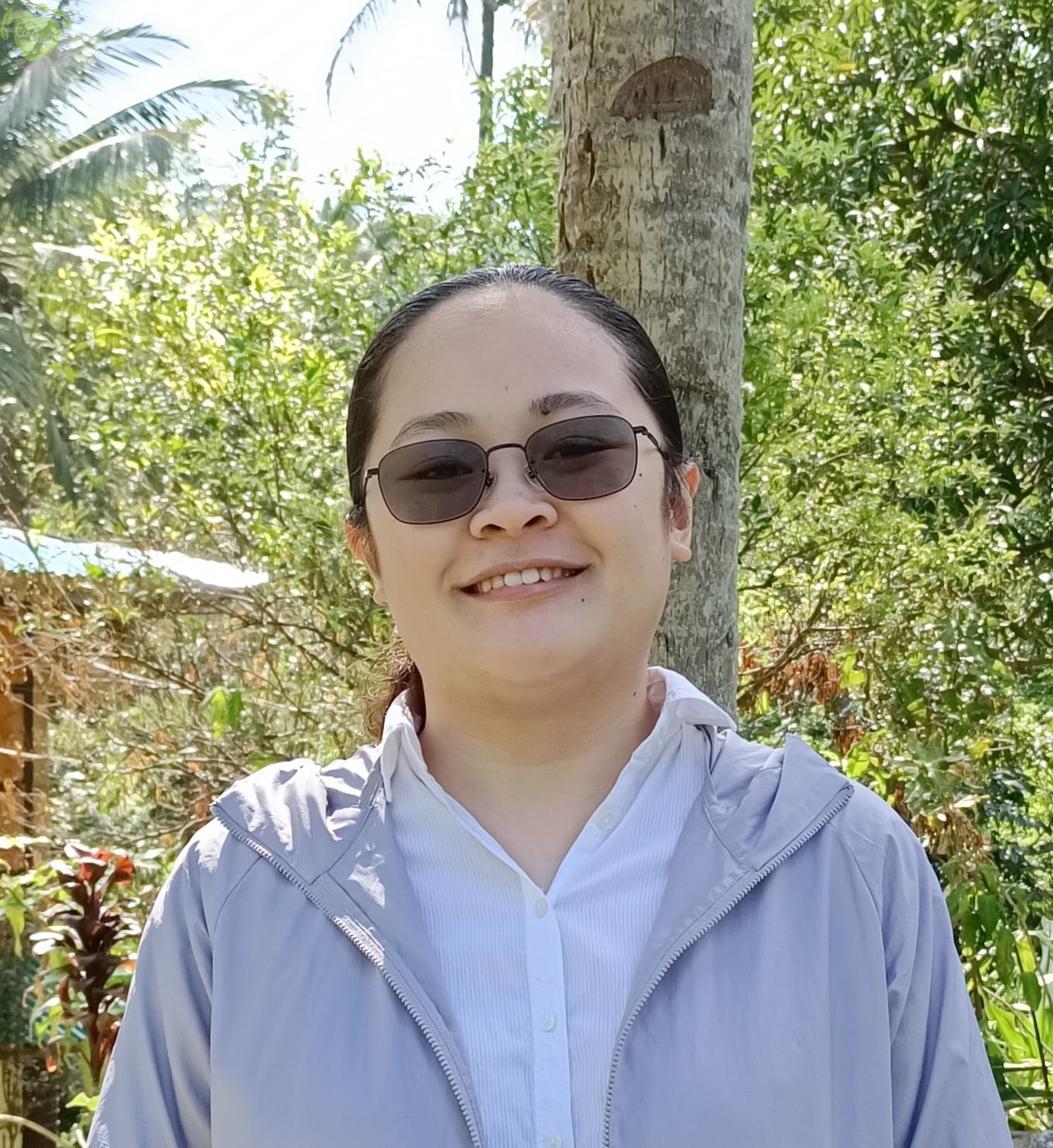
MJ Blancaflor
MJ Blancaflor is a communications professional at the Philippine Bureau of Fisheries and Aquatic Resources, a government agency mandated to develop and conserve the country’s fishing waters. She previously worked as a multimedia journalist covering politics and health for Manila-based newspapers. MJ loves to jog with her dog named Parky.
